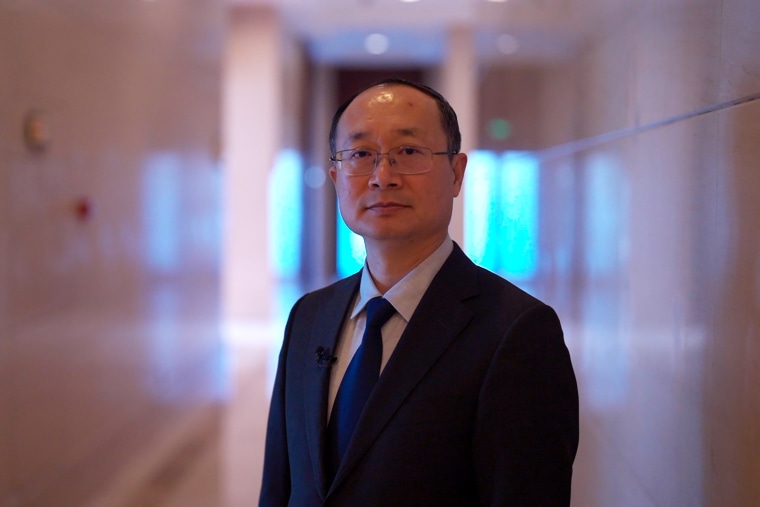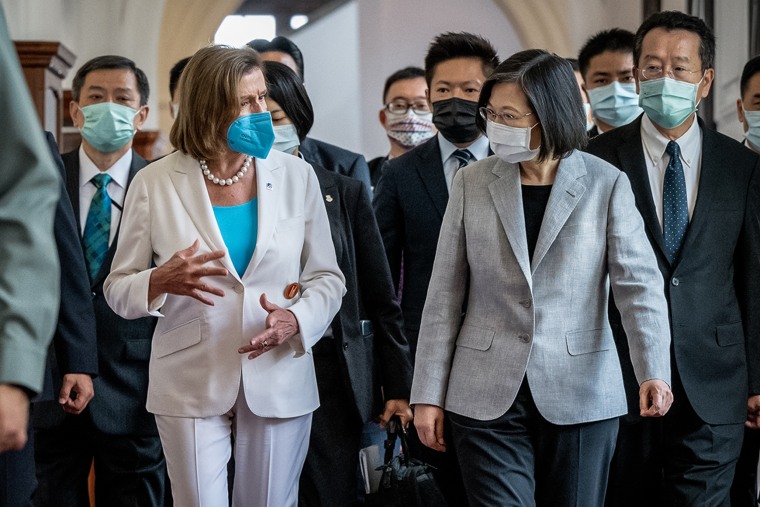U.S. and China to hold high-level talks aimed at curbing the fentanyl crisis
BEIJING — The United States and China will hold formal high-level talks in Beijing next week aimed at limiting the flow of fentanyl into the U.S., senior Chinese officials tell NBC News, resuming counternarcotics cooperation that was suspended for more than a year even as America struggles with what has been called its worst drug crisis in history.
China — which U.S. officials say is the primary source of the precursor chemicals synthetized into fentanyl by drug cartels in Mexico — has promised greater cooperation with the U.S. on combating the crisis. It also continues to deflect blame for it.
“I believe through this collaboration, both countries can enhance their law enforcement capabilities,” Yu Haibin, one of China’s top narcotics control officials, said in an exclusive interview this week. “We will achieve remarkable results in combating fentanyl substances, including precursors.”
But he also repeated China’s argument that America’s fentanyl problem stems from the public’s unrelenting demand for it.

“The crisis in the U.S. is not manufactured by China; rather, its roots lie within the United States itself,” said Yu, who is deputy director general of the Ministry of Public Security’s Narcotics Control Bureau and deputy secretary-general of the National Narcotics Control Commission.
Chinese officials did not go into detail about the upcoming counternarcotics meeting in Beijing, which has not yet been publicly announced. The White House declined to confirm the meeting.
The U.S. has accused China of complicity in its fentanyl crisis, which together with other opioids has killed hundreds of thousands in recent years and destroyed communities across the country. According to the Centers for Disease Control and Prevention, more than 80,000 people in the U.S. died from overdoses involving opioids in 2021 alone, with almost 88% of those cases involving synthetic opioids such as fentanyl.
The meeting early next week of a newly launched U.S.-China counternarcotics working group is part of delicate efforts to improve relations between the world’s two biggest economies, which in recent years have fallen to their lowest point in decades. The launch of the working group was one of the outcomes of the November meeting in California between President Joe Biden and Chinese President Xi Jinping, their first encounter in a year.
China had made such talks contingent on the lifting of U.S. trade sanctions on a Chinese government lab, which Washington did shortly after the Biden-Xi meeting. NBC News was granted rare access to the Beijing lab, which examines evidence and issues reports for use in court proceedings and which both the U.S. and China say is essential to controlling fentanyl.
Yu said the lifting of the sanctions was a “positive start.”
“We believe, and hope the American people believe, that China will honor its commitments, and we are willing to cooperate with the U.S. and other countries worldwide on drug control law enforcement,” he said.
Who’s to blame?
U.S. officials blame China for much of the current opioid crisis, which experts say began in the 1990s with the overprescription of legal pain medications and has steadily worsened as those medications gave way to illicit and extremely lethal narcotics such as fentanyl.
“We know that the global fentanyl supply chain, which ends with the deaths of Americans, often starts with chemical companies in China,” Attorney General Merrick Garland said in October as the Justice Department announced new fentanyl-related indictments against China-based companies and their employees.
In 2019, China permanently classified all variants of fentanyl as controlled substances and took other measures to stem the flow of finished fentanyl from China to the U.S., which has not seized any shipments since then. But the U.S. says Chinese companies are instead now selling the precursor chemicals needed to synthesize fentanyl to drug cartels in Mexico, which then move the finished product to the U.S.
Cooperation between the two countries slowed in 2020, when the U.S. imposed trade sanctions on the Chinese Ministry of Public Security’s Institute of Forensic Science over China’s alleged abuses against Uyghurs and other mostly Muslim minority groups. China was further incensed by then-House Speaker Nancy Pelosi’s August 2022 visit to Taiwan, which Beijing claims as its territory, announcing that it was suspending all counternarcotics cooperation with the U.S.

U.S. officials have prioritized the…
Read More: U.S. and China to hold high-level talks aimed at curbing the fentanyl crisis

